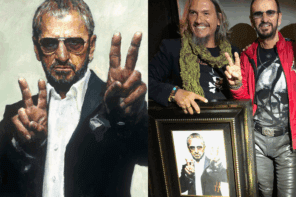The internet and digital culture have paved the way for an era marked by an accelerating convergence of cultures. We can all feel a perceptible shift in the media’s narrative landscape, whether in books, music, or even films. The barriers that once divided people’s knowledge of different cultures are gradually dissolving, leading to an exciting blend of ideas, beliefs, and narratives. Anant Mehra
This shift has brought fresh dynamism to the film industry, leading to the creation of movies that traverse geographical borders and challenge traditional norms.
Taking advantage of this wave is 25-year-old LA-based Indian filmmaker Anant Mehra. His stories are set where Indian mysticism and Western pop culture references collide. And his characters face familiar obstacles – be it jealousy and insecurity in relationships or a longing for purpose and validation – but do so unbound to the tropes and stereotypes that representations of their cultures often entail.
The current representation of Indians in Hollywood has seen significant strides recently, but still has much room to grow. While there has been a marked increase in the visibility of Indian actors and stories in mainstream Hollywood, the roles often fall within stereotypical narratives, such as tech-savvy sidekicks or characters heavily defined by their ethnic backgrounds. Even in instances where there is a true multi-faceted exploration of a character, it has often been from a born-and-raised Indian-American perspective.
Mehra’s works help shift this landscape towards a more nuanced portrayal of Indians from all over the diaspora. His short films occupy themselves less with cultural definitions and more with spiritual elements of the human experience. In doing so, they often become more authentic in their portrayals of modern complex characters.
“Providence,” a short film Mehra wrote and directed, consolidates the ideas of mysticism, purpose, and obedience for a young Indian woman, providing an engaging thirteen minutes deep dive into the experience of modern anxieties.
In another award-winning short film titled “Waves” directed by Mehra, an Indian woman in Los Angeles grapples with questions of monogamy, spontaneity, and choosing the right path for her own life.
In both works, it matters much less where Mehra’s characters come from and more what they’re experiencing.
Mehra’s unique injection of Indian characters into universal stories is not just about diversifying the narrative; it’s necessary to move closer to an authentic depiction of a new generation. His characters, much like him and his peers coming up in the film industry, often don’t prescribe themselves to or act according to any ‘definable’ cultural background. The success of filmmakers like Anant Mehra reinforces that stories, regardless of their origin, have the potential to resonate with audiences worldwide when they make space for nuance.





